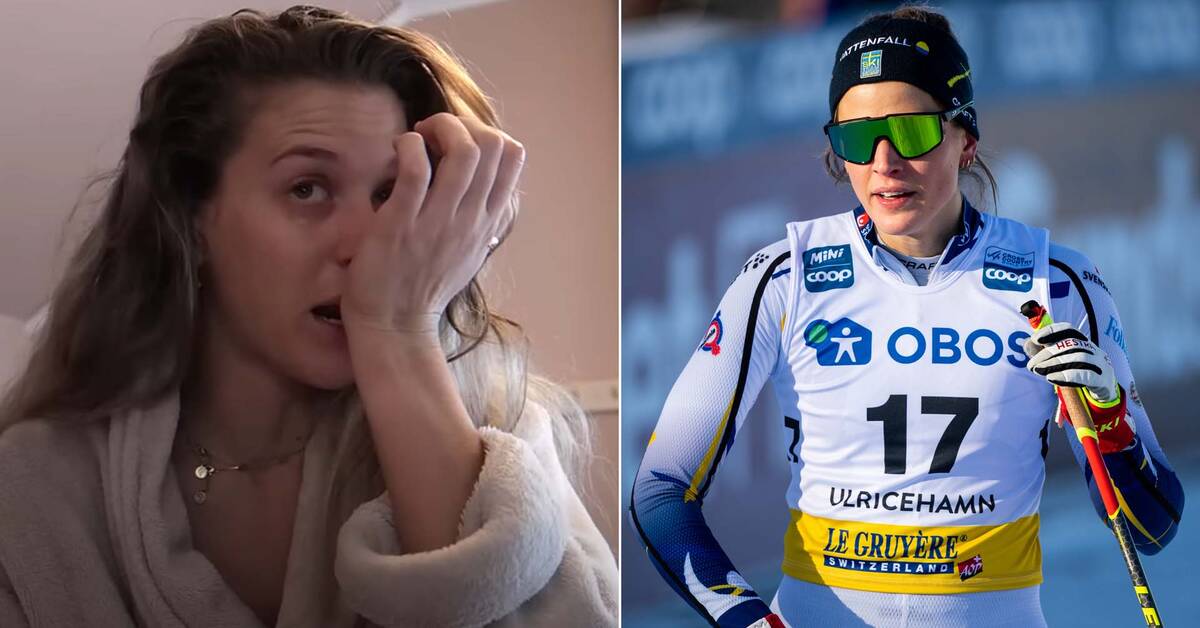It is in an emotional clip on YouTube that a teary-eyed Anna Dyvik opens up about the difficult period after the Winter Olympics in Beijing, where she was eliminated in the quarterfinals and finished in 17th place.
- I certainly won't dare to publish this.
You might wonder why I'm even filming this.
But I've had a bit of a slump this whole summer and spring.
When SVT Sport meets Dyvik, she tells what it was that made her dare to post the clip in the end.
- I still think it's important to talk about the fact that you can be very, very happy, but that you can also be very, very sad and that all emotions can exist.
Many people get a little afraid of bad or negative feelings, but I think that this is what life is and that it is also completely natural.
- It may not always feel like I am a role model for young children or young people skiing, but I actually am.
I am still passionate about the fact that you should be allowed to be as you want, you should be allowed to feel as you feel and that you should dare to ask for help.
And then I feel it is important to share that elite athletes are not the superheroes we might be perceived to be.
What reactions have you gotten after posting this clip?
- Lots of nice ones, good.
I was going to say that it is good that many people get in touch, but it is sad that many people get in touch and recognize themselves.
"Very great senselessness"
It was when Dyvik came home from the Olympics that she experienced, what she herself describes as, a new type of depression.
- Then I felt a great sense of futility, as if nothing mattered, "nothing is fun anyway so I might as well stay here all day".
- I was very self-critical after the Olympics and was very dissatisfied with the result there, and I was very tired.
Then it just became a soup of everything, very very bad, negative thoughts about myself.
But with the help of her partner and skier Gustaf Eriksson, mental coach Anneli Östberg, yoga and support from her best friend in the national team, Moa Ilar, Dyvik managed to turn the negative thoughts around.
- I always sleep well when I share a room with Moa, and it's important to have fun together too.
It's easy for it to become very results-oriented, to just want to develop and move forward all the time, but sometimes you might not feel so good about it.
So it's good to have good people around you who make everything feel easy and fun.
Dyvik is praised by the national team manager
National team manager Anders Byström says that there is support available within the national team and the association's organization in the form of sports psychologists and mental coaches.
But he especially emphasizes the importance of the active being there for each other in tough moments.
- That safety net is stronger than all external people.
Ask how you feel, be open about it, we work on that a lot within the team, says Byström and at the same time praises Dyvik for daring to tell.
- It is extremely important to be open about the fact that there is mental illness in elite sport and the more people who do it, the less taboo it becomes to talk about it.
So much credit to Anna that she dares to do it and is so open about it.
We have discussions like this in the team as well, it's important that we talk about each other and have a good time together not just on the track.

